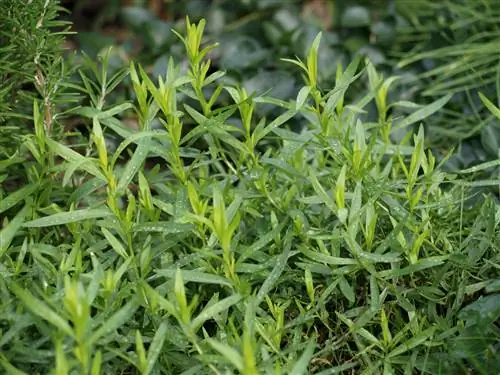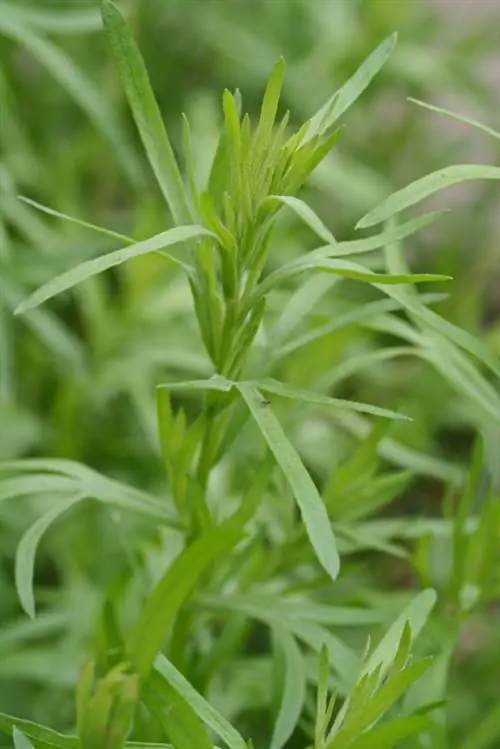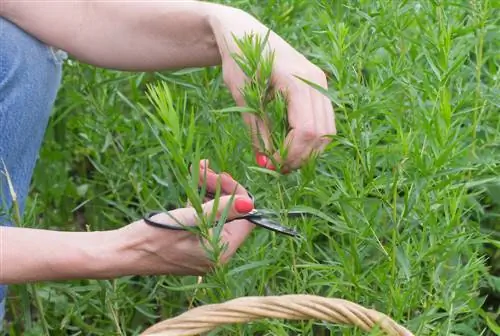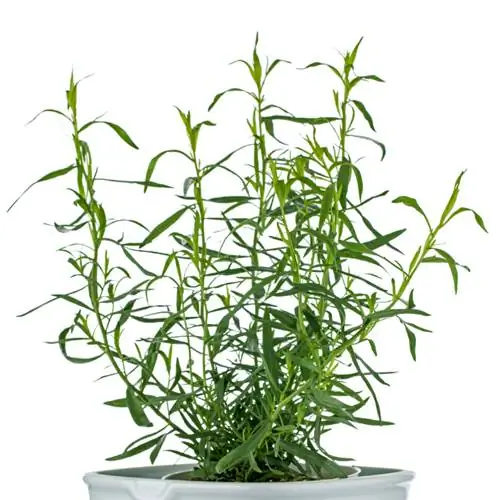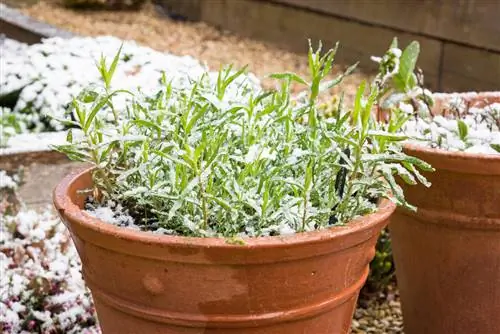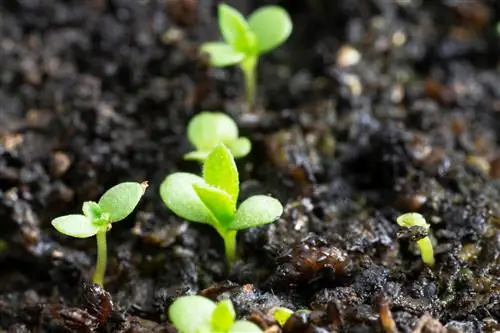- Author admin leonars@hobbygardeners.com.
- Public 2023-12-16 16:46.
- Last modified 2025-01-23 11:22.
The title of this article would probably irritate some readers. Hasn't tarragon been used as an aromatic culinary herb for ages? That's true, but the matter is not that simple. The question of toxic ingredients needs to be examined again.
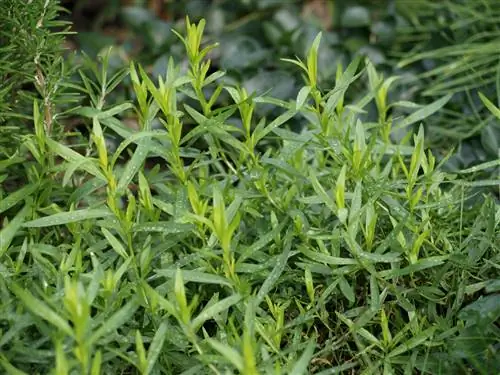
Is tarragon poisonous?
Tarragon contains the substance estragole. In animal experiments it was found that it can cause cancer and have a genetically damaging effect. All-clear: Scientific studies have now proven that theamount of toxins absorbed through food is very low. As a precaution, only pregnant and breastfeeding women should avoid tarragon.
What is the limit for estragole intake?
There isno legally established limit for the intake of estragole. However, the Committee on Herbal Medicinal Products, which is a specialist body of the European Medicines Agency, gives these recommendations for maximum intake levels:
- 0.05 mg per day
- Children under 11 years: 1 µg per kg body weight
However, the recommendations refer to herbal medicines that contain estragole. There are no objections to its use as a culinary herb. Medical studies say that even 1,000 times the typical consumption amount is safe.
Is estragole only contained in tarragon?
No, tarragon isnot only found in tarragon (Artemisia dracunculus), even if the name suggests exactly that. The substance is a component of essential oils and itself has an anise-like smell. Among other things, it also occurs in:
- Aniseed
- Avocado
- Basil
- Fennel
- Chervil
- Nutmeg
- Allspice
- Star anise
- Turpentine
Can processed foods also contain estragole?
Yes, it is possible that processed foods also contain estragole. The harmful and at the same time aromatic substance may not be used as a pure substance. But it can get into food through natural additives such as tarragon oil. Then there is amaximum limit of 50 mg per kilogram for food, and 10 mg per kilogram for non-alcoholic drinks.
Tip
Tarragon also has many very he althy ingredients
Now that the all-clear has been given for the culinary herb, it is worth taking a look at its he alth-promoting properties, which also exist. Among other things, tarragon has an appetite-stimulating, bile flow-promoting and diuretic effect. Good reasons to propagate it from seeds or vegetatively to harvest it just before flowering, when it is most aromatic.

